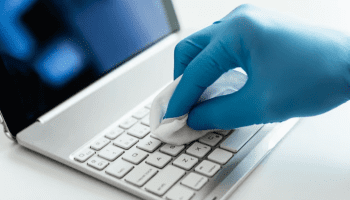When it comes to working in a lab, you’re pretty much guaranteed to be surrounded by specialized tech. After all, the entire point of a lab is to perform specialized tests in order to complete the research or analysis that the lab is working on.
Whether your lab is performing tests for other facilities, ensuring the quality of products, or working on the development of scientific research, you are always going to find tech around you.
1. Plenty of Personal Computers
There is one thing that you will never find a lab without, and that is at least one PC. When it comes to engaging with any kind of research, analysis, or experimentation, you are always going to need to engage with a computer in some capacity.
Whether you are taking detailed notes, checking through the results of a test, or running a diagnostic on some equipment, a good PC is the backbone of most laboratories.
2. Chromatography

When it comes to the identification and analysis of the components of a compound, Chromatography is the industry standard. No other technique is as well known or as widely engaged with as chromatography. For this reason, chromatographic tech is almost ubiquitous in scientific research facilities.
However, there are some variations in what kind you are likely to find. Chromatography can take place across several states of matter, and often it is useful to engage with multiple to achieve your goals, which means you might come across a gas chromatograph, an HPLC system, or even both.
3. Spectroscopy & Spectrometry
Spectroscopy and spectrometry are some of the most important scientific principles around, which means that you are often going to find equipment relating to the use of these principles, such as spectrometers from companies like Malvern Panalytical.
Obviously, the kind of spectrometer that you find will be dependent on the style, or styles, of spectroscopy that the lab engages with.
Infra-Red (IR), Nuclear Magnetic Resonance (NMR), and X-Ray. Spectroscopy studies materials by examining their response to different frequencies of radiation after all, which means spectroscopy is most commonly defined by the frequency of electromagnetic radiation used in the technique.
4. Microscopy

Engaging with microscopy is a fairly fundamental element of almost any scientific facility. Understanding and investigating the microscopic structure of the materials you are working with is almost always going to be helpful in achieving the purpose of your research.
Not to mention the fact that structural analysis can often help in failure analysis and in order to identify or resolve contamination issues within your laboratory. This means that whenever you visit a lab, you’re more than likely to find an electron microscope or two hanging around.
5. Basic Equipment
Finally, there are plenty of incredibly basic pieces of specialist tech that every laboratory is going to need to use, whether you think of them as specialized tech or not.
Things like pipettes, electronic or otherwise, as well as beakers, Bunsen burners, and more. These pieces of tech allow the most fundamental elements of analysis and research to take place, particularly when it comes to the effective preparation of your testing materials.
Read Also:




























